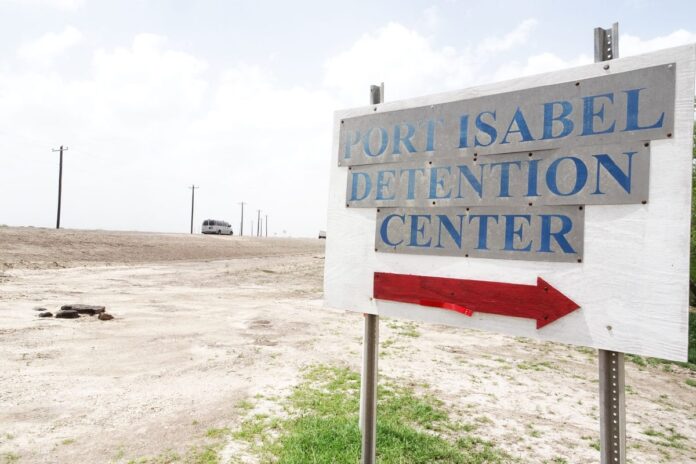BROWNSVILLE — A man who has been on a hunger strike since mid-October will be forcibly hydrated after a federal court in Brownsville issued a temporary restraining order to Immigration and Customs Enforcement officials in Port Isabel.
According to the document, Mohit Rana is a native and citizen of India. He entered the United States near Calexico, California, and is currently in custody at the Port Isabel Detention Center in Los Fresnos.
U.S. District Judge Fernando Rodriguez, Jr. issued the order in response to a petition filed by DHS and ICE detailing concerns that the man’s minimal intake of liquid could result in his death “in the very near future.”
Officials wrote that Rana has been on a hunger strike and that he has consumed minimal amounts of liquid since Oct. 18. In the four days leading up to the request for a restraining order, his water intake was only a fraction of the 8 cups recommended daily.
The report cites an examination by a doctor which detailed the harmful effects of the hunger strike on Rana’s body, including diffuse abdominal pain, very low blood pressure, and an elevated heart rate.
The order authorized the involuntary administration of hydration to Rana via IV or feeding tube.
It is the second temporary restraining order that has been filed since August by immigration officials at the Port Isabel Detention Center in an attempt to quell a hunger strike.
The first, issued on Aug. 26 in the case of Akram Hossain’s, stated that the court found Hossain’s potential death “not only would thwart ICE’s ability to care for an individual in its custody, but would pose a serious threat to the security and good order of the facility in which ICE currently maintains [Hossain].”
The document cited several cases in which it was determined by a court that inmates could be forcibly fed or medicated as grounding for the issuance of the restraining order.
According to the amended document, Hossain is a citizen of Bangladesh who was in removal proceedings after an immigration judge denied his request for asylum.
He appealed his case with the Board of Immigration Appeals, which was then dismissed, prompting his hunger strike.





